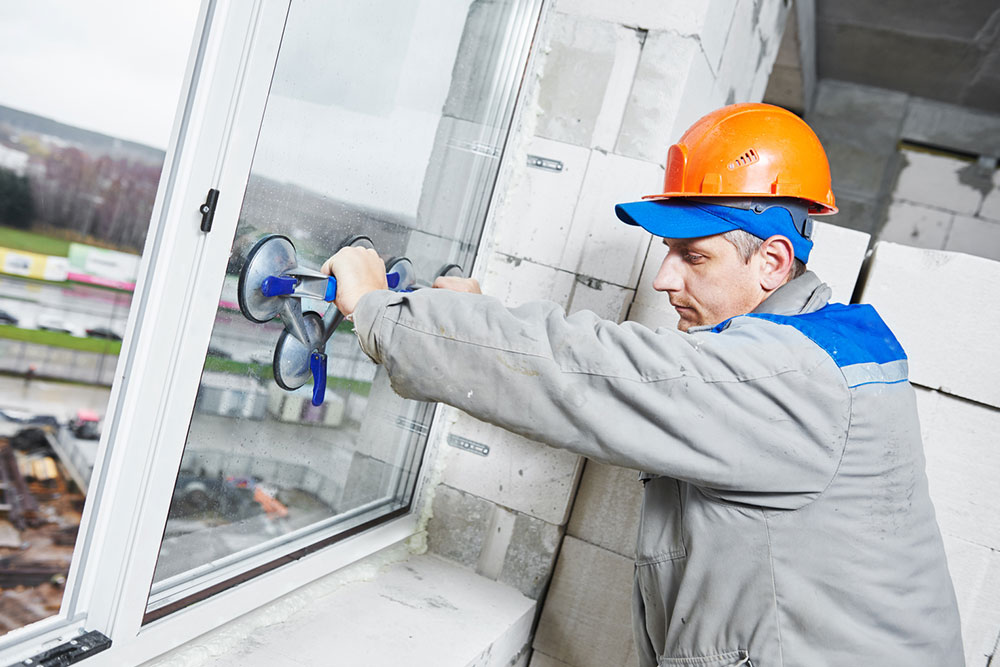
Top 19 window replacement mistakes to avoid
A need for enhanced home comfort, energy efficiency, and aesthetics often drives the decision to replace windows. It helps create a more pleasant living space and potentially saves on energy costs for the homeowners. The benefits extend beyond mere visual upgrades. Energy-efficient windows can contribute to a more sustainable and cost-effective home. When considering window replacement, choosing the right kind is crucial. Factors such as material durability and alignment with the home’s design play pivotal roles.
Here are a few common window replacement mistakes to avoid:
1. Ignoring energy efficiency ratings
The significance of energy efficiency ratings cannot be overstated. The U-factor gauges how well a window insulates, while the Solar Heat Gain Coefficient (SHGC) measures its ability to block heat from the sun. Overlooking these metrics might lead to discomfort and higher energy bills.
2. Neglecting proper measurements
Accurate measurements are essential to ensure accuracy during the window replacement process. Homeowners often make the mistake of measuring only the width and height, neglecting the equally crucial depth of the window openings: ill-fitted windows compromise aesthetics, functionality, and energy efficiency.
3. Opting for the wrong window style
The allure of trendy window styles sometimes overshadows practical considerations. Choosing a style that doesn’t harmonize with the home’s overall aesthetic can disrupt its visual flow. Moreover, the wrong style might hinder ventilation and natural light, undermining the functionality of the space.
4. Refusing to seek the services of a company
While the DIY spirit is commendable, window replacement demands specialized skills. Improper installation can result in air leaks, water infiltration, and compromised security. Homeowners may save money in the short term but risk long-term issues that could outweigh the initial savings.
5. Sacrificing quality for price
Budget constraints can often lead to compromises on window quality. While high-quality windows may demand a slightly larger investment, the long-term energy efficiency and durability benefits far outweigh the initial cost. Prioritizing quality ensures that homeowners receive optimal value for their investment.
6. Disregarding local building codes
Building codes vary by locality, and disregarding them can lead to costly repercussions. Familiarizing oneself with local regulations regarding window replacements, necessary permits, and adherence to energy efficiency standards is crucial to avoid potential legal and financial consequences.
7. Overlooking ventilation
Windows play a vital role in home ventilation. Overlooking the ventilation needs of each room during replacement can lead to stuffiness and potential moisture-related problems. Homeowners should carefully consider the specific requirements of each space to ensure optimal airflow.
8. Failing to consider maintenance requirements
Different window materials come with varied maintenance needs. While vinyl may require minimal upkeep, wood windows demand more attention. Neglecting these maintenance requirements can result in premature wear and tear, diminishing the lifespan of the replacement windows.
9. Forgetting about window orientation
The orientation of a window affects the amount of sunlight and heat that seeps in. Overlooking this factor during replacement can result in excessively bright or dim rooms, impacting both comfort and energy efficiency. Considering window orientation is crucial to achieving a balanced and harmonious indoor environment.
10. Failing to pay heed to the warranty
Warranty details are often relegated to the fine print but are essential. Thoroughly understanding the warranty terms, including coverage for installation, material defects, and the longevity of the warranty, is crucial. Ignoring this information might lead to unexpected expenses if issues arise after the replacement.
11. Selecting inadequate window materials
Choosing the right material for replacement windows is paramount. Each material has its pros and cons. For instance, wood offers a classic aesthetic but requires more maintenance than vinyl. Ignoring these material nuances can lead to dissatisfaction with the windows’ performance and appearance over time.
12. Overlooking noise reduction properties
Windows can significantly contribute to a home’s noise insulation. Ignoring the noise reduction properties of replacement windows can result in a space that lacks tranquility. Homeowners in noisy environments or near busy streets should prioritize windows with adequate sound insulation.
13. Dismissing the need for professional advice
Consulting with professionals in the window replacement industry is often overlooked. They can offer insights into the best-suited options for a particular home, considering factors such as climate, architectural style, and budget constraints. Dismissing professional advice might lead to suboptimal choices.
14. Disregarding design aspects
While functionality is crucial, the windows should go with the home’s interior and exterior design. Neglecting this aspect can result in a disjointed and unpleasing visual appeal, impacting the home’s curb appeal and overall value.
15. Underestimating installation time
A common oversight is underestimating the time required for window installation. Homeowners may expect a swift process and fail to plan for potential delays. Realistic expectations about the installation timeline help manage stress and ensure a smooth overall experience.
16. Ignoring the sun’s position
The sun’s position changes throughout the day, impacting how much sunlight enters a room. Ignoring this factor during replacement may result in spaces that are either too bright or too dark at certain times. Considering the sun’s path helps optimize natural light levels.
17. Disregarding home resale value
Window replacement can significantly impact a home’s resale value. Disregarding this consideration may lead to choices that do not align with the preferences of potential future buyers, potentially affecting the property’s marketability.
18. Neglecting permits and regulations
Securing the necessary permits and adhering to local regulations is often overlooked in the excitement of window replacement. Failure to comply can lead to legal complications and fines. Homeowners should ensure they have the required permits before going ahead with the replacement process.
19. Failing to consider changes in the weather conditions
Considering long-term climate patterns is crucial when selecting replacement windows. For instance, choosing windows with superior insulation and durability is essential in areas prone to extreme weather conditions. Ignoring these considerations can result in ill-equipped windows to withstand the local climate.


